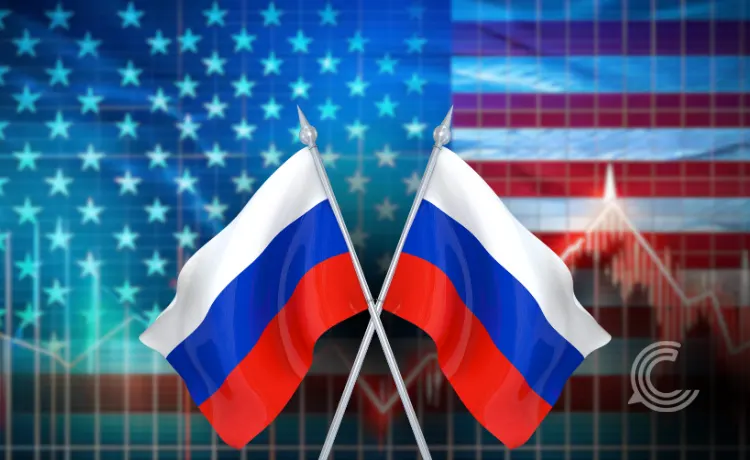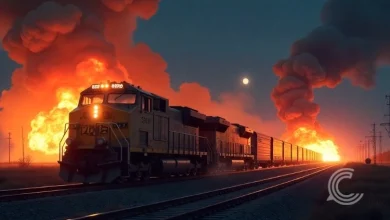US & EU Sanctions on Russian Oil Shake Global Energy Markets

Key Highlights-
- US sanctions top Russian oil companies Rosneft and Lukoil, while the EU bans Russian LNG imports.
- Sanctions shake global energy markets, impacting buyers in Europe and Asia and sending oil prices higher.
- Analysts warn that enforcement gaps with major Asian buyers like India and China may limit immediate pressure on Moscow.
US President Donald Trump on Wednesday imposed Ukraine-related sanctions on Russia for the first time in his second term, targeting oil companies Lukoil and Rosneft. The move reflects growing frustration with Russian President Vladimir Putin over the ongoing war in Ukraine.
US Targets Russian Oil Giants
The US Treasury Department emphasized that it is prepared to take additional measures, urging Moscow to agree immediately to a ceasefire. “Given President Putin’s refusal to end this senseless war, Treasury is sanctioning Russia’s two largest oil companies that fund the Kremlin’s war machine,” Treasury Secretary Scott Bessent said. “We encourage our allies to join us and adhere to these sanctions.”
This is a major policy shift for Trump, who previously relied on trade measures rather than sanctions against Russia’s oil sector. Earlier this year, Trump imposed additional 25% tariffs on Indian goods after the country purchased discounted Russian oil, while China, another major buyer, has so far not faced similar restrictions.
EU Bans Russian LNG Imports
On the same day, EU countries approved a 19th package of sanctions against Moscow, which includes a ban on Russian liquefied natural gas (LNG) imports. The combined US and EU measures signal an unprecedented coordinated effort to cut off Russian energy revenues, a key funding source for its military operations in Ukraine.
Impact on Global Energy Markets
The sanctions immediately rattled energy markets. Oil prices surged more than $2 a barrel, with Brent crude futures climbing to around $64. Traders and analysts are closely watching the ripple effects on supply chains and shipping routes, as reported by Reuters.
While Europe scrambles to secure alternative LNG supplies, major Asian buyers such as India and China remain critical to Russia’s oil revenue stream. Analysts warn that the absence of these buyers from the sanctions could limit the short-term effectiveness of the measures. “This can’t just be one and done,” said Edward Fishman, a former U.S. official and Columbia University scholar. “The question is whether the U.S. will threaten sanctions on anyone doing business with Rosneft and Lukoil.”
Enforcement Challenges and Strategic Shifts
Furthermore, the sanctions also target dozens of subsidiaries of Rosneft and Lukoil, blocking US assets and prohibiting Americans from conducting business with them. However, enforcement remains challenging due to complex global supply chains and alternative shipping routes. Russia has increasingly relied on its so-called “shadow fleet” to transport oil, often rerouting shipments to Asia, highlighting how sanctions enforcement extends beyond direct company measures.
Public statements from the Treasury and Ukrainian officials have hailed the move as a strong step, with Kyiv previously proposing these companies as key US sanctions targets. However, analysts caution that major buyers in Asia must comply or reduce purchases to truly impact Russian revenues.
Political Fallout and Outlook
Trump canceled a planned summit with Putin in Hungary, citing the timing as inappropriate, and emphasized that sanctions should not remain long-term due to potential risks to the dollar’s dominance in global transactions.
As the US and EU enforce these sanctions, global energy markets are bracing for volatility. European importers seek alternative LNG sources, while Asian buyers weigh the financial and diplomatic implications of continuing Russian oil purchases. The US and EU sanctions on Russian oil are reshaping trade flows and supply chains, signaling a new phase in the intersection of geopolitics and energy markets.



